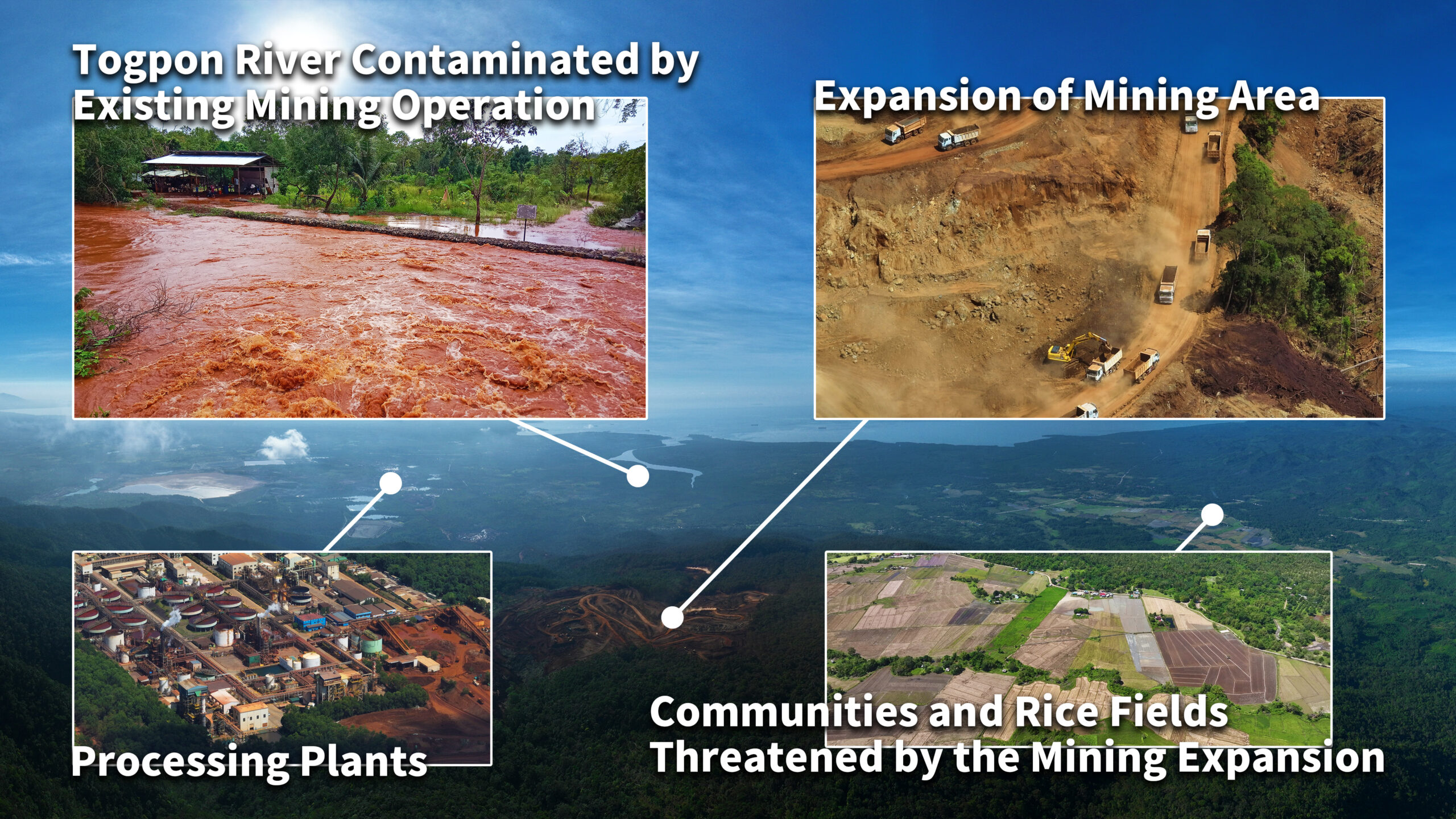Philippine and Japanese Civil Society Groups Urge Sumitomo Metal Mining to Suspend Nickel Mining and Processing Operations in Palawan — Concerned about Possible Expansion of Water Pollution and Community Harms

On March 21, 2025, four Philippine and Japanese civil society organizations (Environmental Legal Assistance Center (ELAC), Legal Rights and Natural Resources Center (LRC) / FoE Philippines, Pacific Asia Resource Center (PARC), Friends of the Earth Japan) submitted a petition to call on Sumitomo Metal Mining Co., Ltg. (SMM) to immediately suspend the Coral Bay Nickel Processing Project and the Rio Tuba Nickel Mining Project in Palawan until effective and publicly verifiable countermeasures are developed and implemented to avoid destructive impacts on local communities.
According to a recent report by an expert who has been conducting water quality surveys since 2009 in cooperation with FoE Japan, hexavalent chromium exceeding domestic and international environmental standards has been detected constantly during the rainy season at a fixed point in the Togpon River flowing from the existing mining concession of the Rio Tuba Nickel Mining. In September 2024, the highest concentrations of hexavalent chromium was observed in 15 years of water quality studies. It is clear that the projects have failed to effectively address water pollution for more than a decade, despite the repeated calls of civil society groups for action.
With expectations of growing global demand for nickel in the context of efforts toward a decarbonized society, mining operations have begun to expand in the region. However, as no effective pollution mitigation measure has been taken to date, it is highly likely that similar water pollution will spread to other rivers. It is undeniable that indigenous peoples and farmers who depend on the rivers for their daily lives and agriculture in the vicinity of the projects may be adversely affected for decades to come. More local communities will also be exposed to health damage risk because hexavalent chromium is a highly toxic substance that is carcinogenic and also causes skin irritation, etc.
SMM is the parent company (100%) of Coral Bay Nickel Corporation (CBNC), which has been operating the HPAL processing plant in Batarasa of southern Palawan since 2005, and all the nickel-cobalt mixed sulfide produced by CBNC is exported to SMM’s plants in Japan to produce battery materials, etc.. The company’s battery materials have been officially adopted by Tesla as well as by Toyota Motor Corporation for their in-car batteries. The company also have a 26% stake in Nickel Asia Corporation (NAC), the largest shareholder (60%) in Rio Tuba Nickel Mining Corporation (RTNMC), from which it procures raw materials.
Shigeru Tanaka, Executive Director of PARC, noted that “The only reason climate change has become such an urgent issue is because developed economies have failed to act for decades. Communities in the Philippines should not have to pay the price for the need for swift decarbonization. It is time we put a stop to this reckless, unsafe and irresponsible mining, and seriously debate other means of realizing the Paris Climate Goals. It is at least clear that this mining will not even pass the smell test on human rights due diligence.”
Read more here: FoE Japan
.

